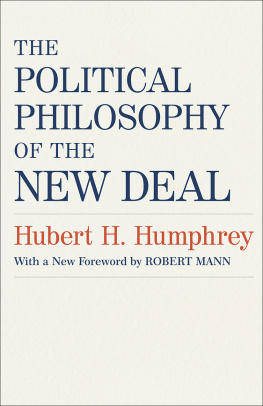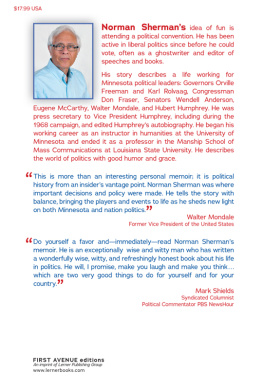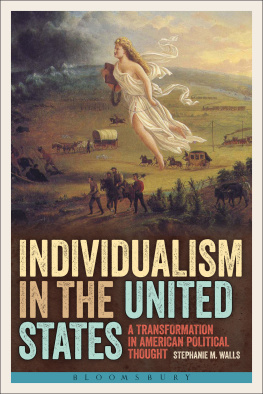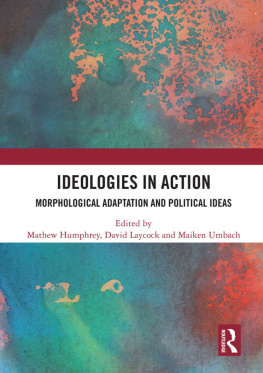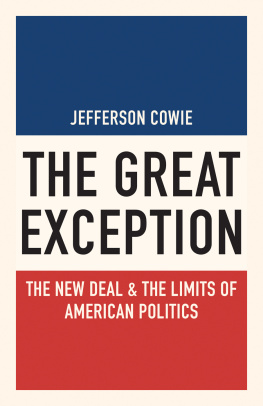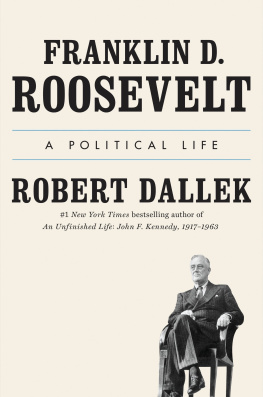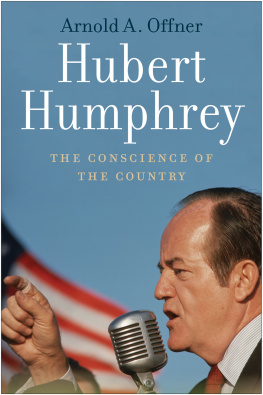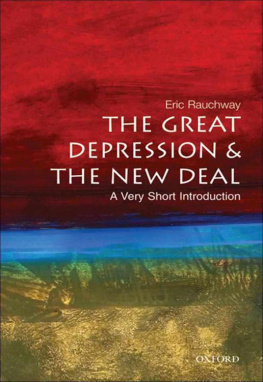Foreword to the 2015 Edition
IT WAS A STARTLING DISSENT. In 1961, in the midst of the Cold War, as many Americans and their leaders remained fixated on the nations long, nuclear-tinged struggle with the Soviet Union, U.S. Senator Hubert Humphrey declared that the Soviets and international communism were not the nations most serious threats.
I am here to tell you, the Minnesota Democrat told delegates to the National Association of Social Workers convention at Minneapolis in May, that the major war in the world today is not a war in many areas against communism. It isnt the Communist that is the trouble. Its the poverty, the misery, the sickness, the illiteracy, the frustration, the hopelessness. And when theres enough of that, it seems to attract the communists or the totalitarian.
Although he considered himself a devout Cold Warrior, Humphrey dismissed the idea that communism was the nations most dangerous common enemy. The common enemy of society is poverty, he insisted. Poverty accompanied by hunger, by ignorance, by disease, and by despair. Its the common lot of two-thirds of the world. America, he believed, had the unique ability to win that war against poverty. Its time for America to be recognized throughout the world as pro-people, not just anti-Communist.
Humphrey proposed reorienting Americas foreign policy to emphasize, not just military might, but economic opportunity. No amount of money, no amount of weapons, no amount of material power can compensate for social injustice and for our unwillingness to accept people as our equals. Humphrey believed that U.S. foreign policy would be a lot more effective if we had welfare officials, experts, attachs serving in every American embassy overseas and particularly in the new and emerging nations. He argued that it would do more good to establish a school of social work than it would to open up another mine or put in a steel plant. Concluding his remarks, Humphrey declared, A revolution sweeps this world. Revolutions are not always good, but theyre always disorderly. The question is, will we guide and ride this revolution, or will we let it ride over us. The answer is not in the hands of the generals.... The answer is in the hands of the citizens.
These social workers may not have been fully aware that Humphrey spoke to them about poverty from hard, searing experience. Born in 1911, he had grown up in South Dakota, the son of a druggist in the small town of Doland. At age sixteen, the national farm crisis, which had preceded the looming Great Depression by a decade, touched his family in a dramatic way. He arrived home from school one day to find his parents talking to a stranger in front of their modest house. The two men looked somber. His mother was crying. Dad has to sell the house to pay our bills, his mother told him. Humphrey said he recalled that his father talked to the man for a short time, signed a paper, and then the man went away. Afterward, Dad wept.
The worlds cruel inequities had slapped a young Humphrey in the face. At that moment, I began to have an adults awareness of the possibilities for pain and tragedy in life, he wrote in his memoirs. Other people in town suffered similar losses of home and happiness. A neighbor and close friend, who was also president of a local bank, committed suicide, Humphrey recalled.
Humphreys family wasnt so poor, however, that he couldnt scrape together enough to attend the University of Minnesota upon graduation from high school. There, he studied and excelled in the schools political science program. Eventually, however, the familys financial woes interrupted Humphreys studies, forcing him back to South Dakota to work in the family drugstore, now in Huron, where his parents had relocated in pursuit of greater opportunity.
Although Humphrey temporarily left political science, he burned with a passion for politics, a trait inherited from his father, H. H., for whom he was named. His father also shared with the son his admiration for Franklin Roosevelt, the man who would profoundly influence the nation and who would help shape Humphreys political ideology. H. H. was a delegate to the 1928 Democratic National Convention in Houston that nominated New York Governor Al Smith for president. Although Smith lost the election to Herbert Hoover, the Humphrey family found a new political hero. Humphrey recalled that his fathers identification with Smith was extraordinary, but as [H. H.] recounted events of the [Democratic] convention, he became even more excited about the man who nominated Smith: someone named Franklin Roosevelt. Dad was certain this Roosevelt would one day be President of the United States. By the time Smith had gone down to defeat, Humphrey wrote, his father was already looking to the day he could campaign for Franklin Roosevelt.
The sons devotion to Roosevelt was sealed almost a decade later, in 1936, when the president came to Huron on a tour of drought-ravaged areas of the country. Humphreys father was then chairman of the local Democratic Party organization and, as such, was among those invited to board Roosevelts train when it pulled into the towns station. H. H. took an awestruck Hubert along to meet the president.
While his father might have inspired Huberts initial affection for Roosevelt and his New Deal programs, the younger Humphreys profound experiences as a small-town businessman during the Depression also shaped the future vice presidents political philosophy. I never got hooked in those chaotic times, as so many people did, on Marxism or other radicalism as a way out of the depression, he wrote. Had I continued at the university uninterrupted, I might have, but I was involved instead in a business whose purpose was to make a profit, and I frankly liked the system even if we werent particularly successful. In later years, some would call Humphrey a radical or a Socialist, but he would reject that label. I have never really been anything other than an advocate of a pragmatic free enterprise.
Although deeply devoted to the basic principles of the American free enterprise system, Humphrey also knew that there was much wrong with it. He had observed some of his friends and neighbors becoming increasingly radicalized in their newfound poverty during the Depression. He recognized that many Americans rightly asked if their nations economic system was fatally flawed. Although the Depression inflicted emotional scars on him and his family, it did not leave Humphrey doubting fundamental capitalism. We struggled, each of us working as hard as possible, he recalled of Dolan and Huron, but the struggle often seemed in vain. The drugstore was constantly under threat of seizure by creditors. That period left permanent impressions and, indeed, prejudices with me, Humphrey wrote. My fear of private debt came out of my fathers experiences. My views on the needs of rural America, on agricultural legislation, on soil conservation were all formed in those difficult days.

